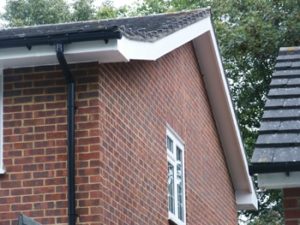Nine Things That Your Parent Taught You About Fascia Installation
페이지 정보

본문
Fascia Installation: A Comprehensive Guide
Fascia installation plays a crucial function in both the looks and performance of a building. It refers to the board that runs horizontally along the edges of a roofline, offering a neat surface and facilitating the attachment of rain gutters. The choice of materials, designs, and proper installation strategies can substantially impact the durability and look of a structure. This article offers a thorough look at fascia installation, detailing the materials generally utilized, a step-by-step installation procedure, possible difficulties, and regularly asked questions.
Table of Contents
- Understanding Fascia
- Meaning
- Types of Fascia Materials
- Tools and Materials Needed for Installation
- Step-by-Step Guide to Installing Fascia
- Typical Challenges and How to Overcome Them
- FAQs About Fascia Installation
- Conclusion
1. Understanding Fascia
Definition
Fascia is the horizontal board that covers the ends of roofing system rafters. It provides a completed appearance while likewise serving several functional purposes, including supporting the roofing and securing seamless gutters.

Kinds Of Fascia Materials
A number of materials can be utilized for fascia installation, each with its own advantages:
| Material | Advantages | Disadvantages |
|---|---|---|
| Wood | Natural looks, paintable, easy to deal with | Vulnerable to rot and bugs, requires maintenance |
| Vinyl | Low maintenance, resistant to fading and rotting | Can be less long lasting than wood, minimal design options |
| Aluminum | Durable, resistant to rust, low maintenance | Can dent easily, minimal color choices |
| Composite | Resistant to rot and bug damage | Greater initial cost, can look less authentic |
| PVC | Really resilient, easy to install | More expensive than wood or vinyl, not universally readily available |
2. Tools and Materials Needed for Installation
Before starting fascia installation, it is important to gather the required tools and materials to ensure the task goes efficiently. Here's a list of products you will need:
Tools:
- Tape procedure
- Miter saw
- Hammer or nail gun
- Level
- Caulking gun
- Ladder
- Security safety glasses
- Drill
Products:
- Fascia board (product of option)
- Nails or screws
- Caulk or sealant
- Gutter system (if appropriate)
3. Step-by-Step Guide to Installing Fascia
The installation of fascia can be done as a DIY job. Here's a step-by-step guide on how to successfully set up fascia:
Step 1: Preparation
- Check the Roof: Before start, ensure the roofing structure is sound. Look for any signs of damage or rot that might require attention.
- Step the Length: Using a measuring tape, identify the overall length required for the fascia boards.
Step 2: Cut the Fascia Boards
- Cut the Boards: Use a miter saw to make cuts at the appropriate lengths. Make angled cuts at corners for a neat surface.
Step 3: Position the Fascia Boards
- Hold the Board in Place: Position the fascia board versus the roof edge and use a level to ensure it is straight.
Step 4: Fasten the Boards
- Nailing: Secure the fascia board into location using nails or screws. This involves nailing through the board into the rafter ends. Ensure that the fasteners are spaced approximately 24 inches apart.
Step 5: Seal the Joints
- Apply Caulk: Around the joints, apply caulk or sealant to prevent water seepage, guaranteeing the longevity of the set up fascia.
Step 6: Install Gutters (if appropriate)
- Attach Gutters: If you're also setting up gutters, attach them directly beneath the fascia to make sure proper drainage.
Step 7: Final Inspection
- Inspect Alignment: After installation, do a final check to make sure everything is aligned properly and firmly fastened.
4. Common Challenges and How to Overcome Them
Installation might not always go as prepared, and it's necessary to be gotten ready for common challenges:
- Misalignment: If the fascia boards appear uneven, double-check the level and compare all measurements before securing.
- Inaccurate Cutting: Always validate measurements before cutting. If cuts are too brief, it will require acquiring new materials.
- Weather: Plan your installation day thoroughly to prevent rain or high winds, which can jeopardize quality and safety.
5. Frequently Asked Questions About Fascia Installation
Q1: How do I understand which product to select for fascia?A1: Choosing the best product depends on your spending plan, environment, and preferred aesthetic. Wood uses a natural look, while vinyl and aluminum supply low maintenance. Q2: Can I set up fascia by myself, or do I require professional help?A2: Installing fascia can be carried out as a DIY task if you are comfortable working at heights and using tools. However, working with a professional is a good idea for intricate architectures. Q3: How often must fascia be replaced?A3: The life-span of fascia boards can differ. Wooden fascia may need replacement
every 10-20 years, while vinyl and aluminum can
last for decades if kept effectively. Q4: Do I need permits to set up fascia?A4: Check with your local structure department. Numerous places do not require licenses for fascia installation, but it's vital to validate. Q5: What
maintenance is needed for fascia?A5: Regular evaluations for rot or deterioration, specifically in wood, and cleaning or repainting as required. 6.

Conclusion Fascia installation might appear overwhelming,
but with mindful preparation and understanding of materials and techniques, it can be a fulfilling DIY task or an uncomplicated task for experts. Correct installation not just enhances the visual appeal of your home however also makes sure structural stability, especially concerning water management through gutters. When taking on your fascia installation project, keep in mind to adhere to security procedures and, when in doubt, talk to or work with a professional to make sure the very best possible outcome.
- 이전글What's The Current Job Market For Buy B1 Certificate Professionals? 25.07.20
- 다음글11 Ways To Destroy Your Window And Door 25.07.20
댓글목록
등록된 댓글이 없습니다.

